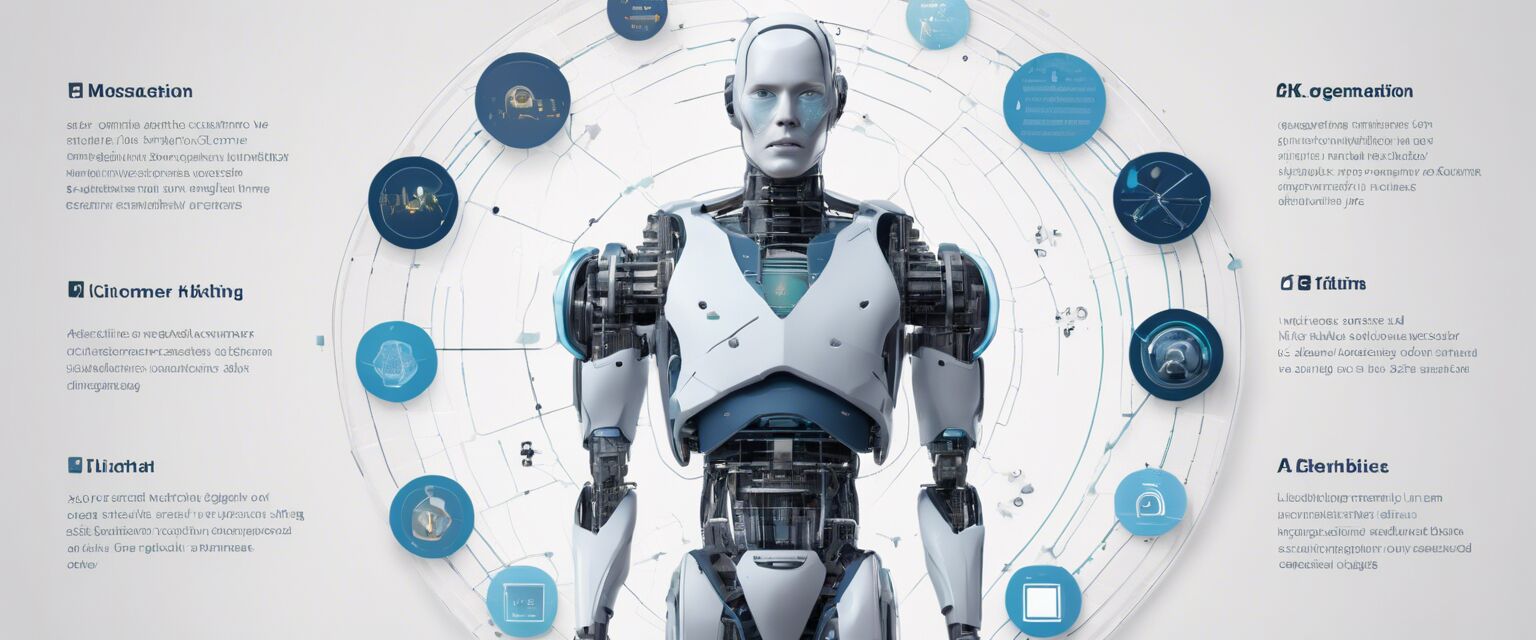
AI in Marketing and Sales
Key Takeaways
- AI tools streamline marketing efforts and enhance customer engagement.
- Data-driven insights improve sales strategies and decision-making.
- Automation tools save time and resources by handling routine tasks.
- Case studies illustrate successful AI integration in various industries.
Artificial Intelligence (AI) is revolutionizing the way businesses approach marketing and sales. As companies strive to optimize their strategies, AI tools are becoming indispensable for enhancing productivity, improving customer engagement, and driving sales growth. In this guide, we will explore the applications of AI in marketing and sales, discuss various tools and strategies, and share relevant case studies that showcase the effectiveness of these technologies.
Understanding AI in Marketing and Sales
AI encompasses a range of technologies that enable machines to mimic human behavior and decision-making. In marketing and sales, AI applications can analyze vast amounts of data, identify patterns, and automate repetitive tasks. This results in more effective campaigns and better customer interaction.
Applications of AI in Marketing
AI can be leveraged in various areas of marketing, including:
- Customer segmentation: AI algorithms analyze customer data to segment audiences based on behavior, preferences, and demographics.
- Predictive analytics: By forecasting trends and customer behavior, AI helps marketers make informed decisions.
- Content generation: AI tools can create personalized content, optimizing it for SEO and engagement.
- Ad targeting: AI improves ad targeting by analyzing user data and optimizing ad placements.

AI in Sales Processes
AI also plays a crucial role in sales, enhancing productivity and driving revenue. Some key applications include:
- Lead scoring: AI can evaluate leads based on their likelihood to convert, allowing sales teams to focus on high-potential prospects.
- Sales forecasting: AI tools help predict future sales trends based on historical data.
- Chatbots: Automated chatbots assist in customer inquiries, providing instant responses and freeing up sales representatives for more complex tasks.
- Personalization: AI allows for personalized sales approaches based on customer behavior and preferences.
Popular AI Tools for Marketing and Sales
Here are some popular AI tools that businesses can leverage to enhance their marketing and sales efforts:
| Tool | Category | Description |
|---|---|---|
| HubSpot | Marketing Automation | Offers AI-driven marketing tools for email marketing, lead generation, and analytics. |
| Salesforce Einstein | Sales | AI-powered features for sales forecasting, lead scoring, and customer insights. |
| ChatGPT | AI Chatbot | Facilitates conversations with potential customers, providing instant support. |
| SEMrush | SEO and Content | Utilizes AI for keyword research, SEO audits, and content optimization. |
Case Studies of AI in Action
Examining real-life examples can provide valuable insights into how AI enhances marketing and sales. Here are a few notable case studies:
Case Study 1: E-commerce Brand Optimization
An e-commerce brand implemented AI tools to analyze customer behavior, leading to a 30% increase in sales. By utilizing predictive analytics, they optimized their inventory and marketing strategies, tailoring promotions to customer preferences.
Case Study 2: Lead Conversion Enhancement
A software company adopted AI for lead scoring, which resulted in a 50% increase in lead conversions. By focusing on high-potential leads identified by AI algorithms, the sales team achieved higher efficiency and better outcomes.

Challenges and Considerations
While the benefits of AI in marketing and sales are clear, there are challenges to consider:
- Data privacy: Companies must navigate data protection laws and ensure customer privacy.
- Integration: Integrating AI tools with existing systems can be complex and require investment.
- Skill gaps: Teams may need training to effectively leverage AI technologies.
Pros
- Enhanced efficiency and productivity.
- Improved customer targeting and personalization.
- Data-driven decision-making.
- Automation of repetitive tasks.
Cons
- High initial investment for AI tools.
- Potential data privacy concerns.
- Need for continuous updates and maintenance.
- Skill gaps in workforce for effective AI utilization.
Future Trends in AI Marketing and Sales
As technology evolves, we can expect the following trends to shape the future of AI in marketing and sales:
- Increased personalization: AI will enable more tailored experiences for customers based on their behavior and preferences.
- Voice search optimization: As voice assistants become more prevalent, AI will adapt marketing strategies to cater to voice search.
- Integration with IoT: AI will work alongside Internet of Things devices to gather data and enhance marketing efforts.
- Ethical AI: Businesses will focus on responsible AI usage, ensuring transparency and fairness in algorithms.
Conclusion
AI is transforming the landscape of marketing and sales, offering tools and strategies that empower businesses to engage customers effectively and improve decision-making. By embracing AI technologies, companies can enhance their marketing efforts, streamline sales processes, and ultimately drive growth. As we look to the future, the integration of AI in marketing and sales will continue to evolve, making it essential for businesses to stay informed and adapt to these changes.
Tips for Implementing AI in Your Business
- Start small by identifying specific areas where AI can add value.
- Invest in training for your team to ensure they can leverage AI tools effectively.
- Stay updated on AI trends and advancements to remain competitive.
- Focus on data privacy and ensure compliance with regulations.








